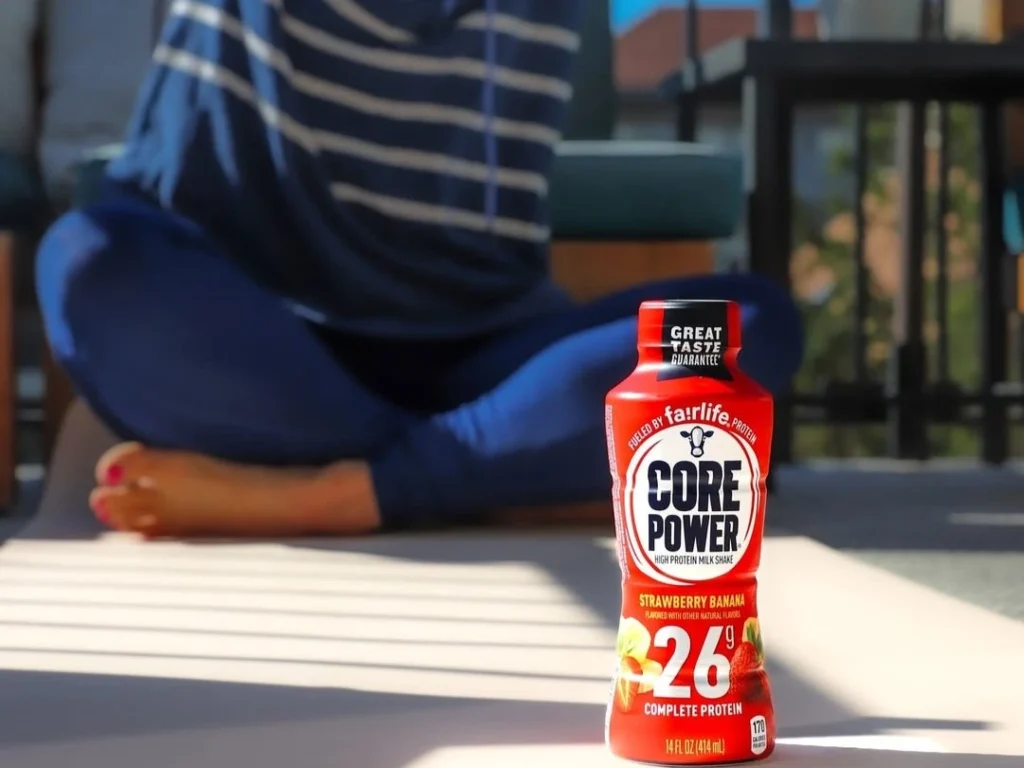Wilpers spoke with ATN about his Fitness Recovery Challenge with Core Power, which spotlighted simple, sustainable ways to recover
Peloton instructor and endurance coach Matt Wilpers recently partnered with Core Power on a 12-Day Fitness Recovery Challenge, which the fairlife protein brand promoted on its Instagram. Each day delivered a prompt around movement, nutrition or mindfulness to reinforce that the 30-minute post-workout window is prime time for recovery.
“One of the goals people continue to forget about is the 150 minutes of cardio a week that the CDC and the American Heart Association recommend of moderate intensity exercise plus two total body strength sessions,” Wilpers told Athletech News. “Consistency trumps intensity any day of the week. Sticking to a routine is more important than (doing) crazy hard workouts.”
That philosophy aligns with the recovery-first framing of the challenge and with Core Power’s ready-to-drink shakes. Made with fairlife ultra-filtered milk, they deliver either 26 grams of protein (Core Power) or 42 grams (Core Power Elite) in a 14-ounce bottle; both are lactose-free, gluten-free and include electrolytes.
“Protein’s particularly hard to find,” Wilpers said. “That’s why I love Core Power (and) take it with me everywhere. It’s simple, clean protein and lactose free. It doesn’t taste like a chalk ball.”
The protein drink’s electrolytes also differentiate it from competitors.
“We’re sweating out a lot of our electrolytes, and if you don’t replace those then you’re cramping,” Wilpers noted. “The nice thing is you can get both the protein and electrolytes right after a workout in that window where it’s most beneficial.”

Wilpers views recovery as a competitive edge in fitness and athletics.
“If you watch Tour de France, it’s really a race to recover,” he said. “If I just do something today, I’m going to get back more than I gave. It’s such a great return on investment every single day.”
In practice, that means matching recovery to the workload. Heavy cycles might call for complete rest; other days it’s “move through the soreness” with mobility or yoga, but always backed by enough protein and simple, clean meals.
His own year follows a clear arc that also shapes how he programs for Peloton members.
“I’m a fall marathon kind of guy, so I schedule fall marathons and then during the wintertime, I like to focus on strength,” he explained. “In the springtime, I’ll do some shorter distance speed work, 10Ks, half marathons and so on.”
Wilpers generally emphasizes lower-intensity cardio like “Zone 2 work, maybe even a little bit of Zone 3,” to build the aerobic engine before layering in more intensity as spring and summer arrive. The goal is to keep people training through life’s transition periods with attainable targets and habits around warm-ups, cool-downs and post-workout nutrition.
Wilpers keeps his routine straightforward: morning coaching, a shake after sessions, strength or conditioning later in the day and quality run workouts slotted on non-filming days so his legs are fresh. He tries to avoid eating out, favors uncomplicated meals and focuses on repeating small, sustainable decisions.
It all comes back to the message he repeats to athletes of every level,
“Consistency trumps intensity any day of the week,” he said.



